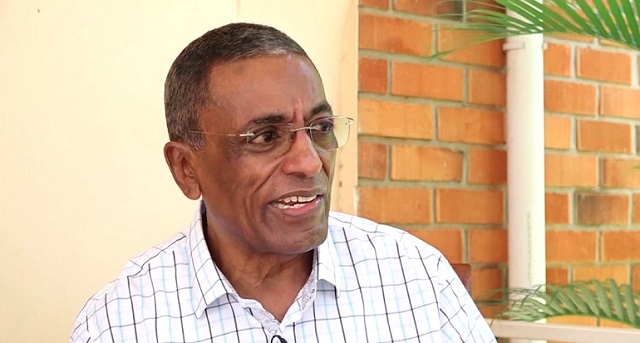
‘Democracy or Development’
However, faced with the same Afrobarometer survey finding, some ruling party stalwarts dismiss them. For Butambala District Resident District Commissioner (RDC), Fred Bamwine, the Afrobarometer findings are merely “provocative”.
“What are the interests of this research organization? Who sponsors them?” he says, “I want to know if there is any country that has developed because of human rights and democracy.”
He says those agitating for democracy should ask themselves whether countries in Asia that are now referred to as emerging economies are achieving that because of democracy.
“People go to elections with hope that those they elect into power will sort their problems only to be disappointed shortly after,” he says, “What people should be thinking about is whether we need regular elections or economic growth and development.”
But former legislator and NRM Kampala District chairman Francis Babu dismisses Bamwine’s fallacy of trading democracy for development. Babu says such views are being fronted by people who have not studied what for sure democracy is about. He blames it on the lack of civic education.
“We made a constitution and promised to teach people about democracy and civic education but all we do now is voter education,” Babu who participated in drafting the 1995 constitution told The Independent.
“People are frustrated and detached because they know nothing will change,” he says.
He adds: “The people get to know that you cheat them and lie to them. They then lose interest in the democracy you are talking about. The doctors, teachers and farmers have lost trust in the government and you just can’t tell them about democracy”.
For him what is going on now is a stark example of why Ugandans have lost hope in democracy yet the country appeared to be on track before. Instead of consulting them about whether age limits should be removed, he says MPs have been playing on people’s intelligence asking them to either “touch or not touch it depending on an individual legislator’s selfish needs”.
But the research shows that those dismissing democracy might soon run out of time. It shows that understanding of democracy has grown with citizens able to provide up to three definitions for democracy growing from 1% in 2000 to 25% in 2015. By 2015, most Ugandans understood democracy to mean civil liberties or personal liberties at 36% or peace and unity at 19%.
To Prof. Karyeija the academic, democracy is experienced and “Ugandans now have a way of defining the concept in their own little ways”.
“Because there is a limit to human endurance, people will get frustrated,” he says, “What has happened in Zimbabwe can’t be discounted. It should be a lesson to this country.” He was referring to moves to kick President Robert Mugabe from power in Zimbabwe.
 The Independent Uganda: You get the Truth we Pay the Price
The Independent Uganda: You get the Truth we Pay the Price


